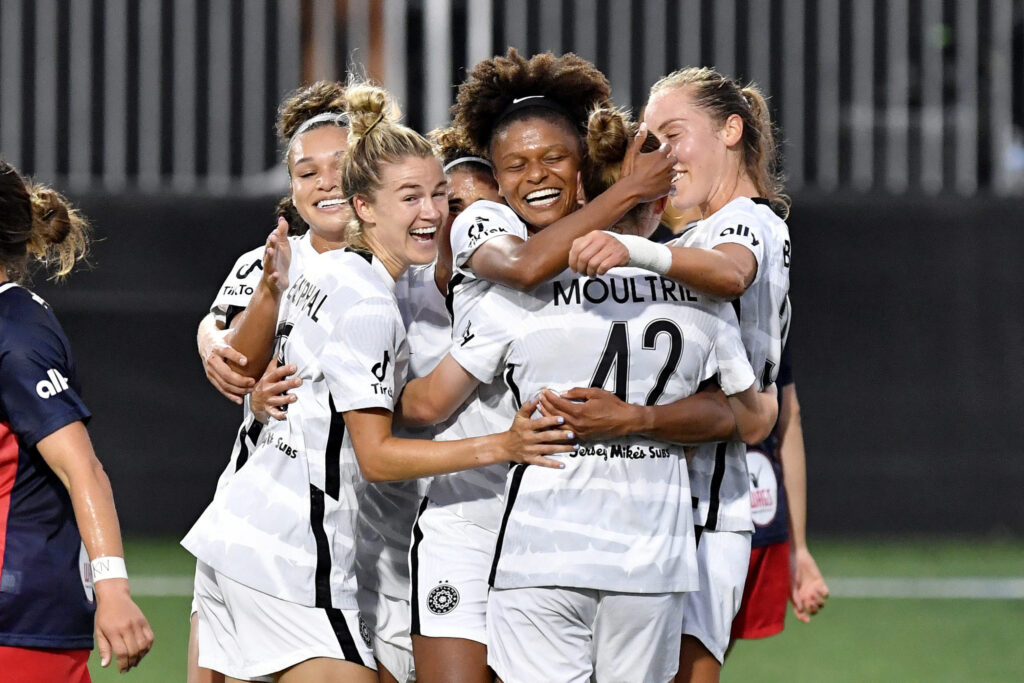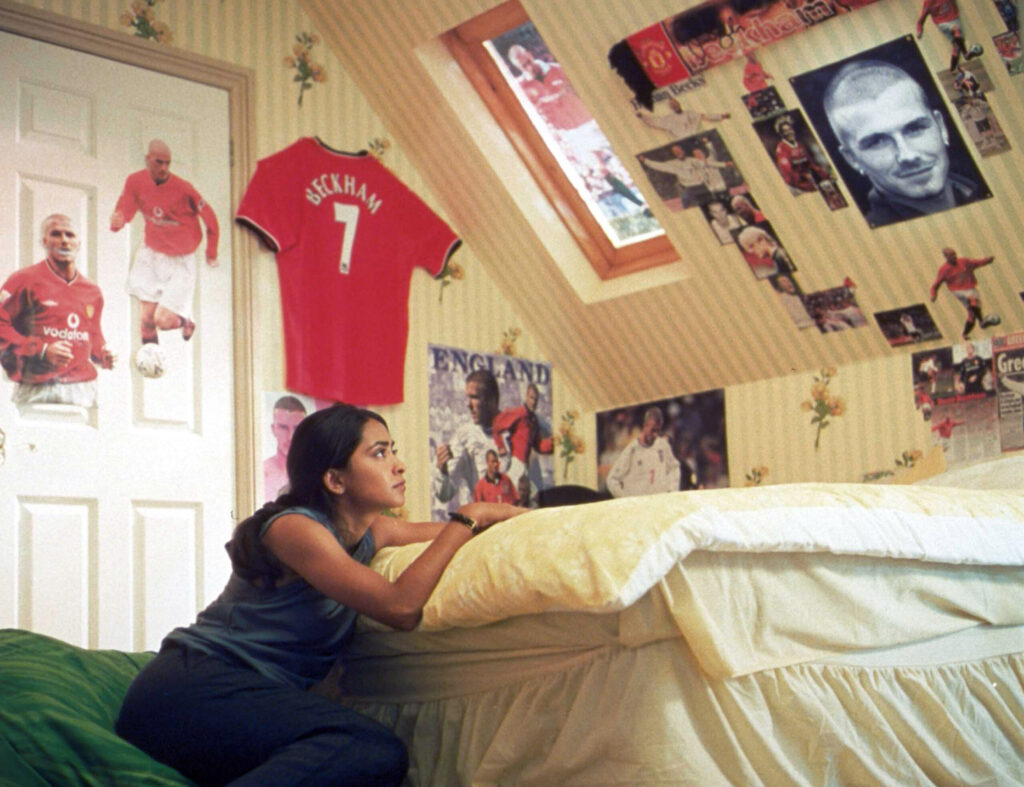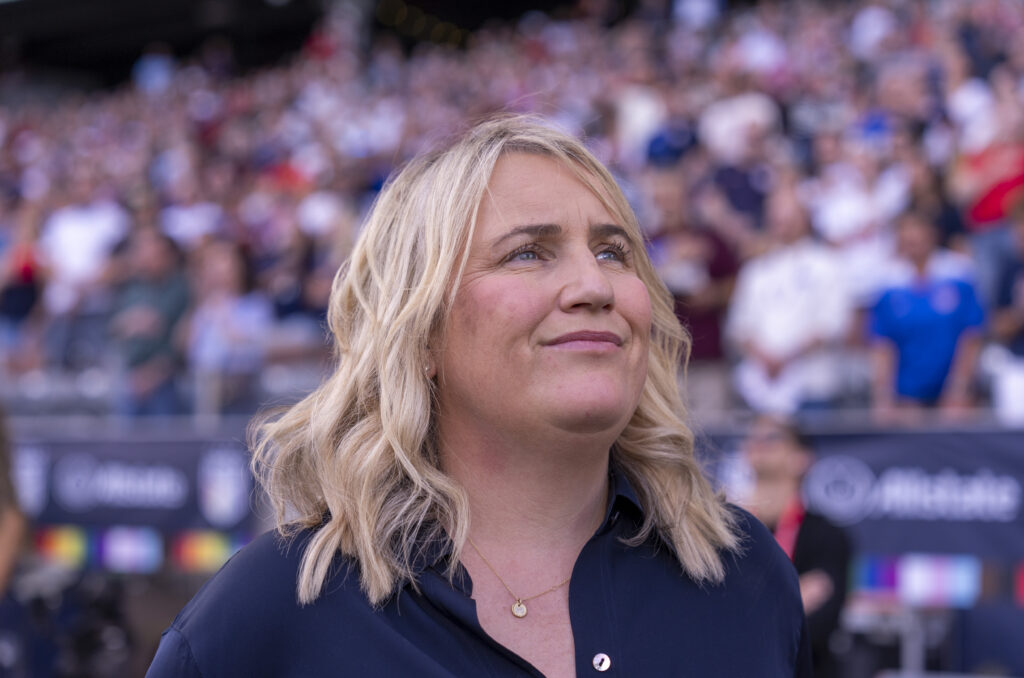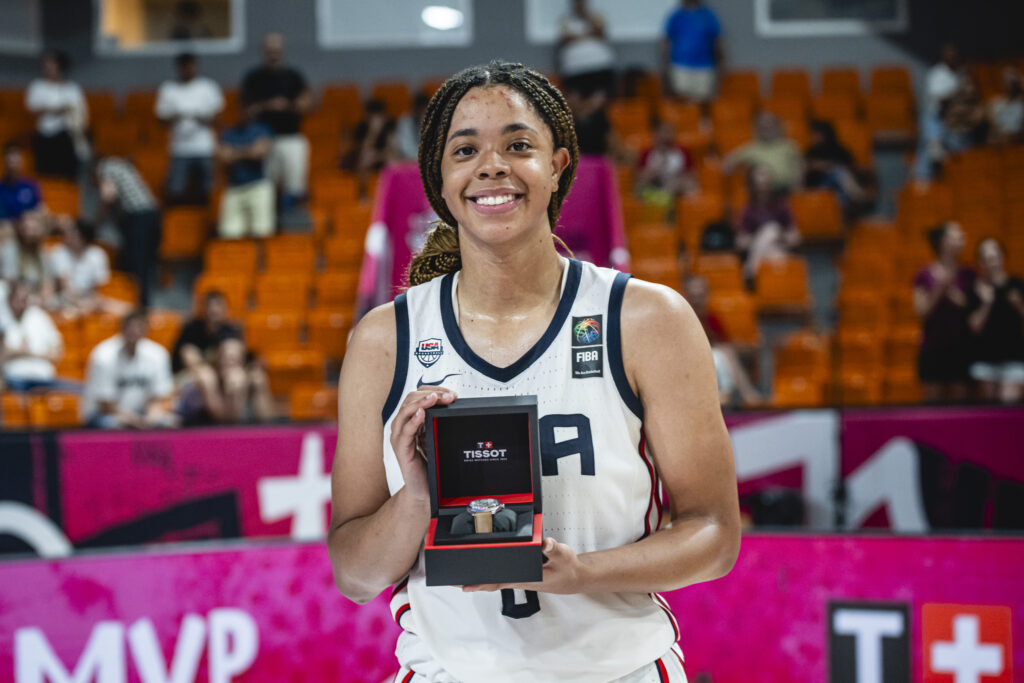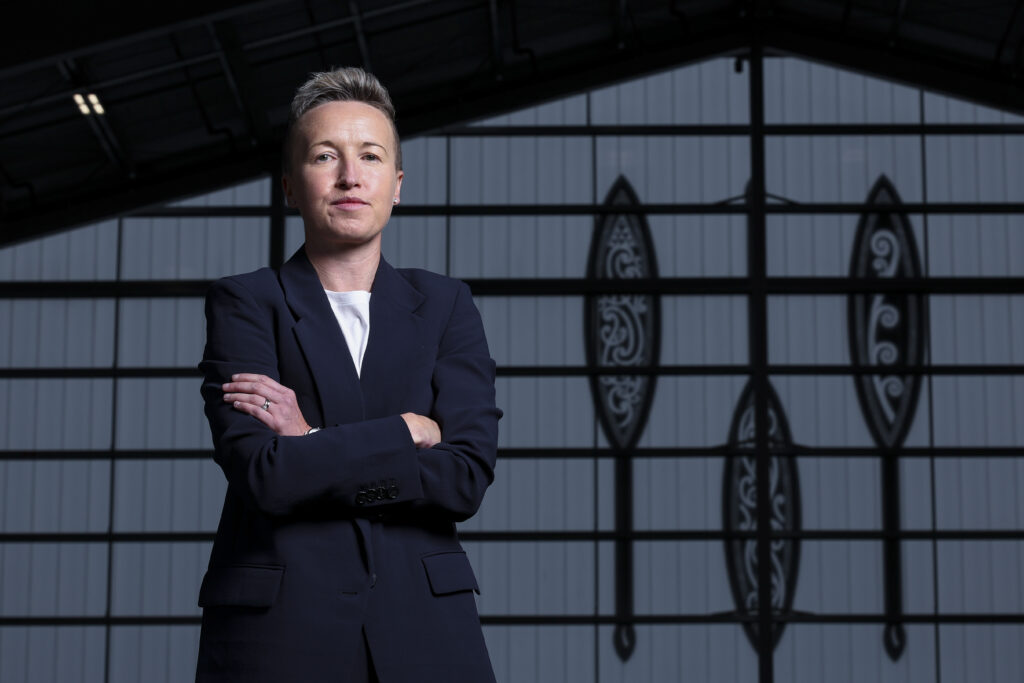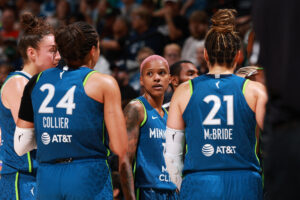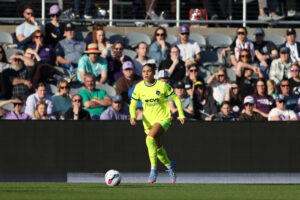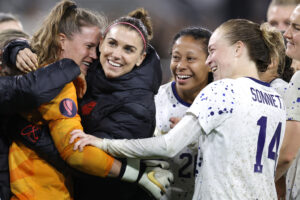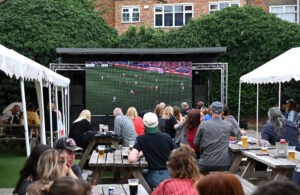When the Portland Thorns first decided that they wanted to win everything in 2021, it was something of a joke.
“In the beginning of the season, we have these goal meetings where we all get together as a team and write out our goals,” defender Emily Menges says. “And it’s pretty silly because any team, you’re going to write down ‘championship,’ you’re going to write down ‘win.’”
“And we were like, well, we want to win everything. Like, let’s get that out on the table because everybody wants to win everything. That’s why you’re here.”
The “win everything” mantra became something of a self-fulfilling prophecy. This year, the Thorns have won the Challenge Cup, the International Champions Cup and the NWSL Shield. Now, they enter the NWSL playoffs as the No. 1 seed and favorites to win the franchise’s third championship.
All of that success in one season might make it easy to look past Sunday’s semifinal game and toward the NWSL trophy. But the intention the Thorns players set at the start of the season has helped them focus on the little things.
“It’s not about looking at the big picture and checking off outcomes, but it’s just about being focused on the process,” forward Simone Charley says. “So I think tomorrow it’s just about winning the day and doing your best in training, and doing that the next day, and the next day, and just taking it day by day.”
The concept of focusing on process over outcome comes up frequently with Thorns players. While “trusting the process” isn’t new in sports, the Thorns have instilled confidence by understanding what is and isn’t out of their control, and that’s led to a sense of individual security and remarkable team consistency.
“If you had the right idea, even if you didn’t execute, you compliment the idea and you compliment the bravery,” Charley says. “And obviously you want to work on the execution, but it’s just about giving your best effort.”
Menges agrees: “Honestly, it’s better when you fail because everyone’s like, ‘OK, well I saw what she was trying to do.’ That’s what we’re trying to do as a team. And so you almost get applauded for failing, because you’re trying to do what the team is trying to do. And so that has created a culture of just growth from everywhere.”
Celebrating the bravery of risking failure feels radical in the current climate of the NWSL, where several coaches have been dismissed this year over accounts of abusive behavior. It hasn’t been uncommon in past years to see players freeze up on the field, overwhelmed with the anxiety of making a mistake and being punished for it. In Portland, different levels of execution instead foster conversations about ways to improve.
The Thorns organization as a whole, however, hasn’t been blameless this season, causing some disconnect. The club placed former general manager Gavin Wilkinson on leave after The Athletic’s Sept. 30 report implicated him in Paul Riley’s controversial departure from Portland in 2015. Thorns players and supporters had called on the club to address its failures in the Riley case. Since then, the club has hired Karina LeBlanc to replace Wilkinson, who remains the GM of the MLS’ Portland Timbers.
Inside the hurricane of the week following The Athletic report, players fell back on the lines of communication they’d established the year before, in the wake of widespread protests over racial injustice and police brutality.
“Culture is just a big part of who we are. I think, especially in the 2020 season, we had a lot of time off the pitch,” Charley says. “We had a lot of hard conversations about all our core values and things that we stand for, and what we want to hold each other accountable to.”
“Black Lives Matter, all the protests in Portland … we kind of started a culture of meeting as a team and talking about bigger things. And so it was not new,” Menges says. “We told Mark [Parsons] we need some time. And so that was nothing new, and we kind of sat down and opened it up. It’s a safe space for people to share things that they might not want to share publicly, or might not feel like it’s the place to share publicly.”

During those meetings in the first week of October, Thorns players opened the floor for anybody to speak. The team heard from players who were only just now learning of Riley’s history, to those who had been in Portland during his tenure, to those who were struggling with the memories of their own personal experiences with abuse.
Menges says it’s impossible to know if every person’s story got told, but coming to understand what their teammates were going through helped them manage their emotions in the weeks that followed.
“I think [Thorns players have] that kind of culture where we can kind of say, OK, this player had this going on that they shared with us, and now we’re going to go out and practice,” Menges says. “But you can approach those people slightly differently because you know they’re going through something.”
It’s probably reductive to call soccer a respite from the off-field chaos, but Thorns players have found some clarity in the ability to set a deadline for off-field work and then put their phones down to focus on the task at hand.
Menges tells the story of the Thorns’ game on Oct. 6, their first since the NWSL suspended games in the wake of the Riley report. Before kickoff that night, Portland’s players released a collective statement asking for Wilkinson to be placed on leave, among other demands. It had taken them days to get the statement to the point where all 28 players felt comfortable with it being released.
They finished the message at 4:30 p.m. local time, two and a half hours before their scheduled kickoff. As Menges remembers it, the team got to the locker room at 5, and the players decided the statement would go out around 5:15.
“Once we put that out, since we had done it so well as a team and everyone felt like they at least got their voice heard, we put our phones away and we’re like, ‘We did it. F–k yeah. Now it’s time to play,’” she says.
Even under the most extraordinary circumstances this season, the Thorns’ ability to fall back on their foundation as a group has given way to consistency on the field.
“I think everyone within the team, we trust each other,” Charley says. “And we know that we want to bring out the best in each other. So when someone comes to you and has ideas on how you can improve, you’re willing to listen because you know that they have your best interests at heart.”
The players have built that bond, but the coaching staff has helped reinforce it. Mark Parsons, Portland’s coach since 2016, announced earlier this year that he would leave the Thorns at the end of the season to manage the Netherlands — a move inspired as much by a desire to be closer to his family in England as by soccer reasons. Parsons’ decision will make it a bittersweet end to the season, whenever that comes, both in on-field success and off-field ties.
“I know he tries so hard to bring people around who are good people first, and so you have that culture of, we are good human beings who care about each other first,” Menges says. “And when he is doing his head coach thing, and kind of separates himself from the team a little bit, he always touches base at the right moments. When he knows that something’s going on, or when you need maybe a little bit of extra communication with him, he always pops in at the right time.”
This Thorns team could possibly end up being Parsons’ magnum opus. They’re a tight-knit group that’s proven they can execute when all of their stars are away and when they have World Cup champions and gold medalists in their midst. They’ve drawn talent and built a foundation over the years, focusing as much on personality fit as on natural ability.
That approach has paid dividends, especially after their 2019 season plateaued and the regular season was canceled in 2020. Second-year regular season rookies Sophia Smith and Morgan Weaver, who sit on the U.S. women’s national team bubble, have created some of the team’s most magical moments this year. Five-year Thorn Kelli Hubly stepped in for the injured Menges during the Challenge Cup, and then played alongside her while Becky Sauerbrunn was away at the Tokyo Olympics. Charley, a national team replacement player in 2019, has been essential to keeping the attack moving as both a starter and a late-game substitute.

The team has relied on its culture when integrating new faces. It will be called upon again when Parsons makes way for a new manager, reported this week to be former Thorn and Canada international Rhian Wilkinson.
“Change is exciting, no matter what the circumstances,” Menges says.
Championship or bust this year, the players hope they can walk into the next chapter with their fans behind them. They know how important the Portland community is to their success, and being transparent with their most ardent supporters will be key going forward.
“What I learned this year specifically, because it kind of hit us so close to home, is that [Portland fans] are an army that’s ready to deploy at any time,” Menges says.
“I think the fans are a very powerful tool, not just during games, but when we need help. When we need help, they’ll show up for us, and when they need help, we show up for them. And so I think if we can better communicate what exactly our vision is and what their vision is, and kind of get on the same page that way, that is the ultimate goal.”
Portland fans have repeatedly held the club accountable, using signs and smoke and sending a list of their own demands to the front office. It’s a commitment borne from a deep passion, which the players have felt throughout the season and plan to embrace Sunday against the Chicago Red Stars, with a place in the NWSL final on the line.
“What makes Providence Park is the fans,” Charley says. “And I think that community aspect that the Thorns organization has, with the fans and with the community, I think it’s just who we are. And so I’m really excited to play in front of them one last time because when you put on the crest, you’re representing them.”
Claire Watkins is a contributing writer at Just Women’s Sports covering soccer and the NWSL. Follow her on Twitter @ScoutRipley.
